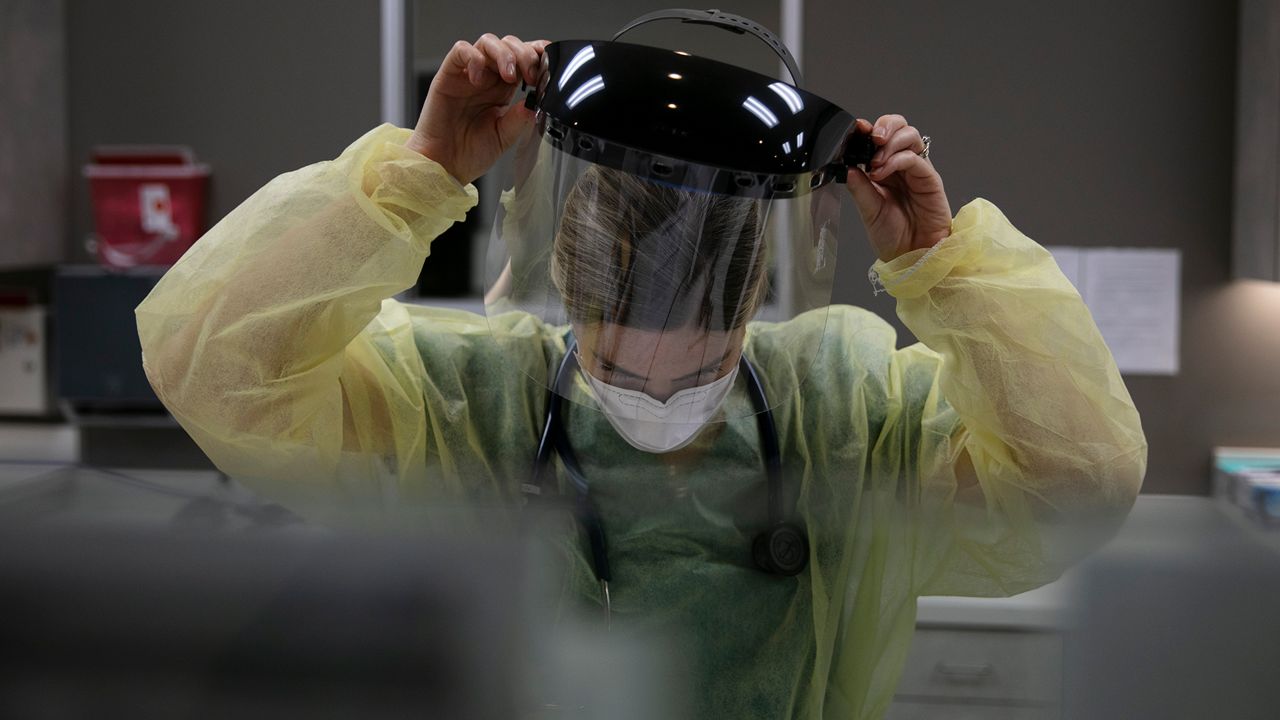COLUMBUS, Ohio — Doctors say a COVID-19 therapeutic pill could be critical to getting out of the pandemic, and several oral antiviral drugs are currently in late-stage clinical trials.
What You Need To Know
- An oral treatment would be much simpler to administer than intravenously administered drugs
- Clinical trials are looking at the efficacy of several oral antiviral medications for COVID-19
- An oral antiviral for COVID-19 could be used similarly to Tamiflu for influenza, experts said
The only antiviral for COVID-19 that has received emergency-use authorization, Remdesivir, has to be administered by an IV. Dr. Joe Gastaldo, OhioHealth infectious disease physician, is optimistic that could change in the coming months.
“Sometime, hopefully by the end of 2021, we are very likely to have at least one, or maybe two antiviral pills for COVID-19,” he said in an interview.
Pfizer and Merck have both begun late-stage clinical trials for their pill treatments for non-hospitalized patients. The drugs are designed to slow viruses from replicating. Patients in the trials are taking the pills a couple times per day for five or more days.
Merck’s drug, Molnupiravir, came on the scene in 2013 when it was being studied to be used for a rare brain infection, Gastaldo said. Merck officials said they are on track to have 10 million courses of the therapy ready by the end of the year.
Pfizer’s pill, which has not been formally named, is a different type of antiviral called a protease inhibitor. It is being studied in combination with a low dose of ritonavir, a drug that is used in antiviral “cocktails” for HIV.
Both drug manufacturers are also conducting trials to look at whether the pills could be used to prevent infection among patients who have not tested positive. Such an application could allow high-risk settings, like nursing homes, to blunt outbreaks, Gastaldo said.
The best comparison for understanding oral antivirals for COVID-19 is Tamiflu, which is widely administered to prevent severe illness from influenza, he said.
“If you think of that model for influenza, you go to your doctor, they do a flu test right there in the office, you get your results, and if you’re early enough in your symptoms, you would benefit from getting Tamilflu, and that same mindset, I think, is going to apply to oral antiviral medications for COVID-19,” Gastaldo said.
The only type of outpatient treatment currently available for COVID-19, monoclonal antibody therapies, also must be administered intravenously, making the logistics of reaching the high number of patients who would benefit a great challenge.
The principal investigator for Molnupiravir’s Phase II clinical trial, UNC Health’s Dr. William Fischer, said that antiviral drugs have to be administered early in the course of illness to be effective.
“This is really a disease of the nose, and then the lungs. If we can stop it in the nose, and prevent progression to the lungs, we have the important downstream effects. We can prevent people from requiring hospitalization,” he said. “We also have the potential to interfere with transmission from one nose to another nose.”
If an oral antiviral ultimately receives an EUA, Fischer said patients wouldn’t necessarily even need to go to a health care facility to get the treatment. After testing positive, a patient would be able to call their primary care doctor, who could prescribe the pill.
Earlier phase trials showed that viral RNA levels dropped faster among COVID-19 patients who received the pill compared to those who received placebo, he explained. In the late-stage trials, scientists will be looking to see if the drugs show clinically meaningful impacts in the larger samples.
A third antiviral candidate from Roche Holding AG is also in a global Phase III trial looking at efficacy with outpatients.
Fischer, a pulmonary and critical care physician, said he has spent the last two weeks working in an intensive care unit with COVID-19 patients, nearly all of whom are unvaccinated, and nearly all of whom have not received a monoclonal antibody infusion.
He said we’re now in a phase of the pandemic where the progression to severe disease is preventable — but only for those who have access to vaccines and monoclonal antibody infusions.
“People in resource-limited settings across the U.S. have limited access to these monoclonal antibody therapies, and people outside the U.S. have extraordinary limited access to both vaccines and monoclonal-antibody therapies,” he said. “The tools in our toolbox are still extremely limited, and that’s really why this work is so important.”



